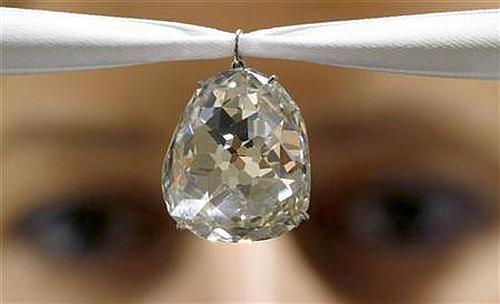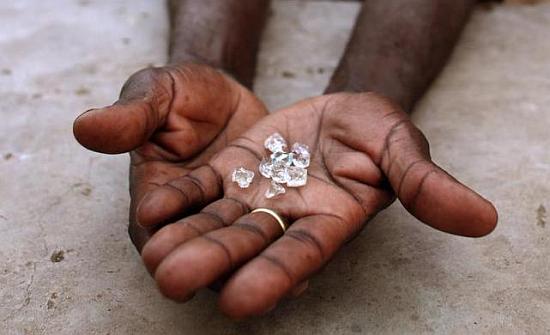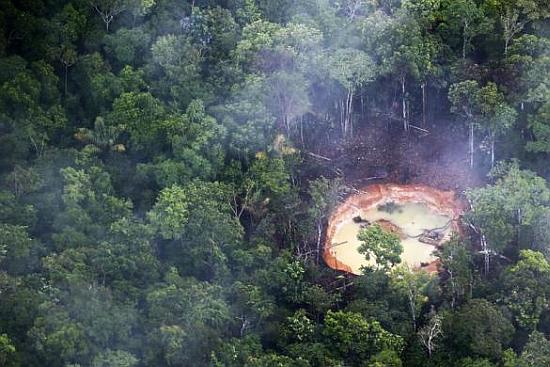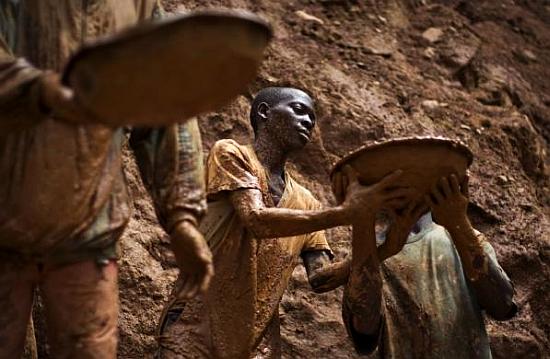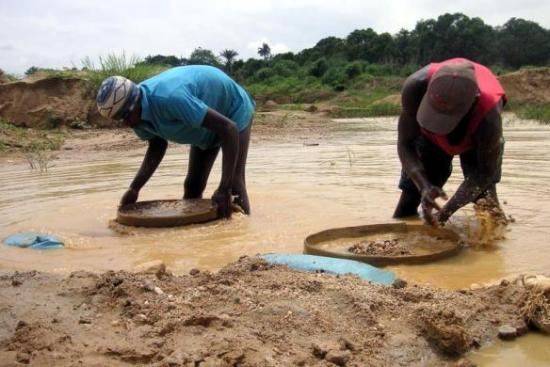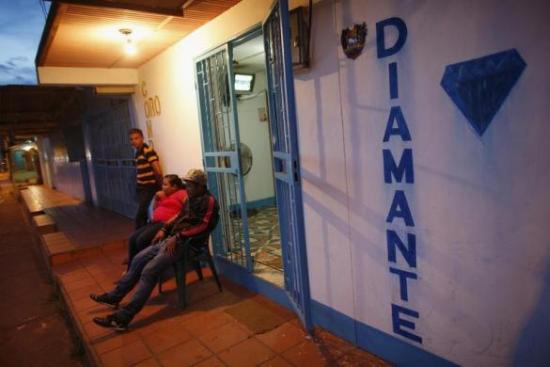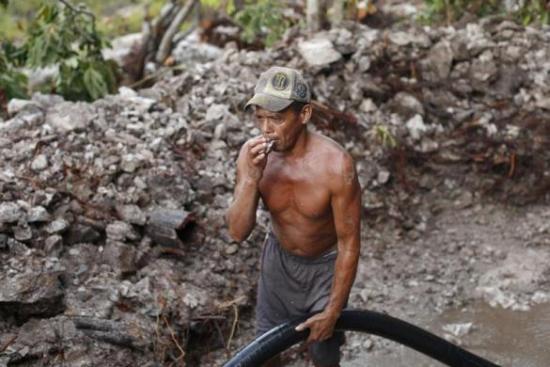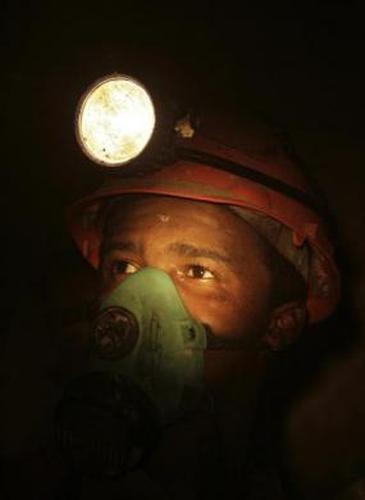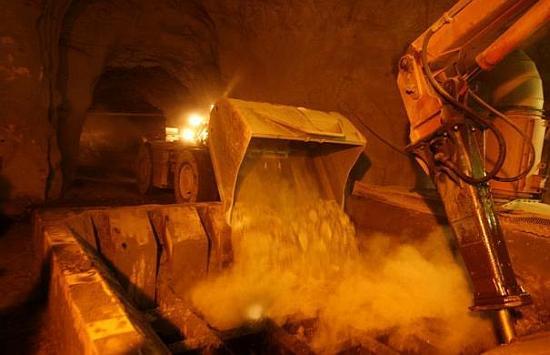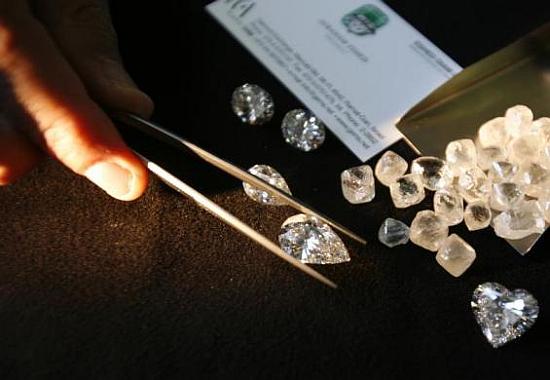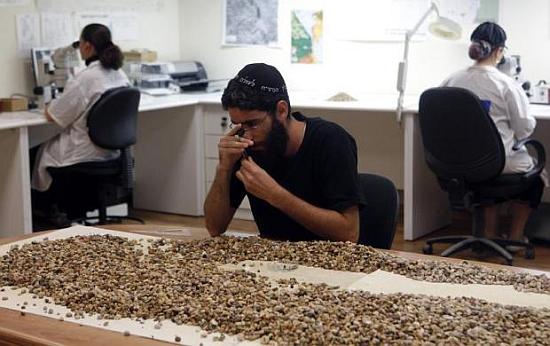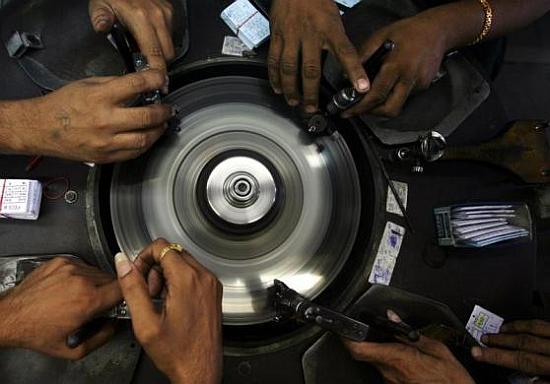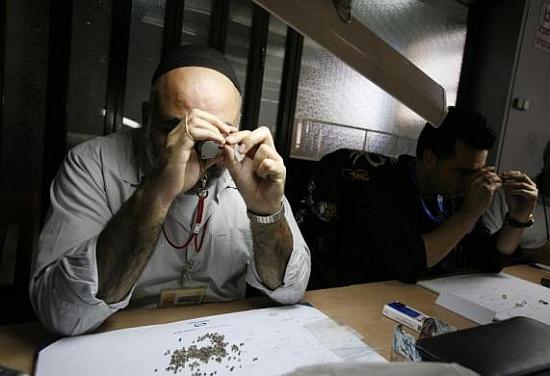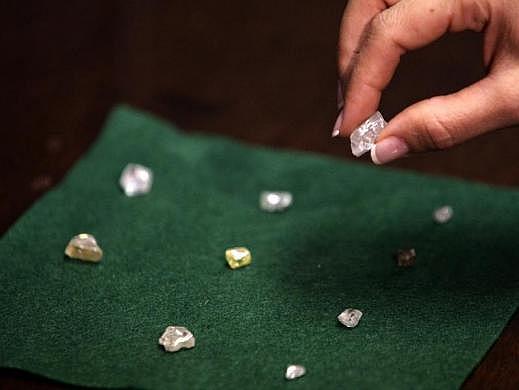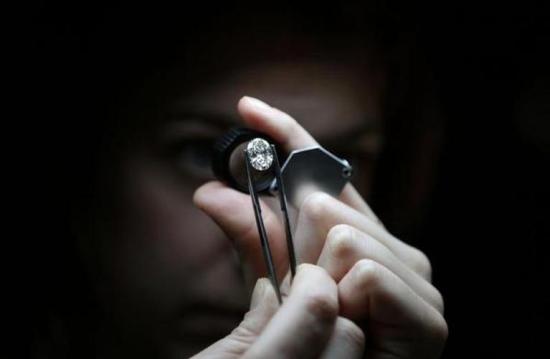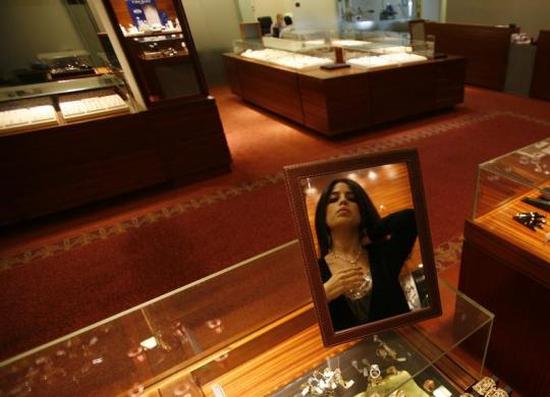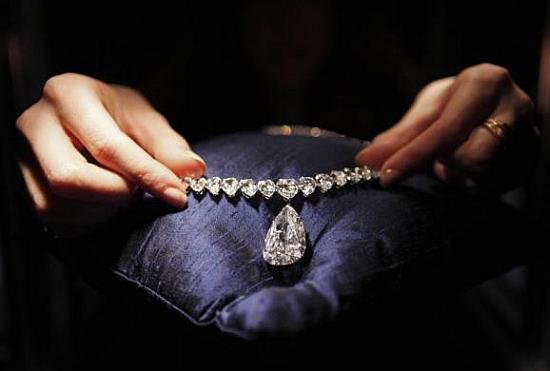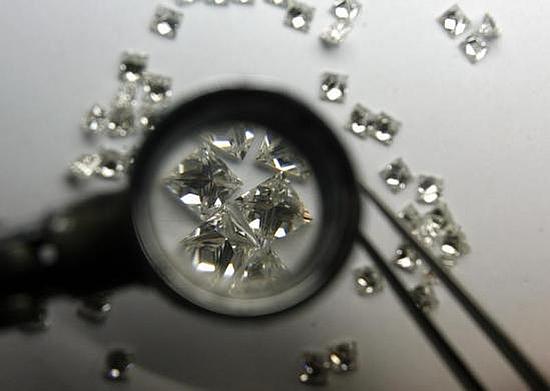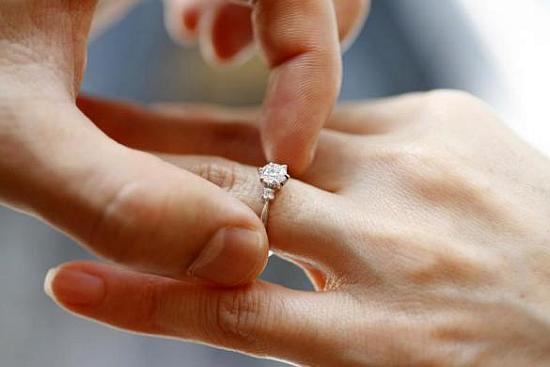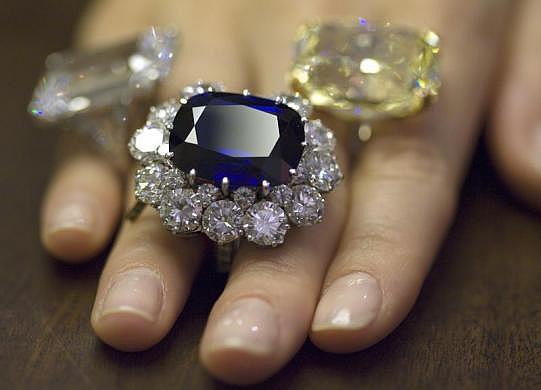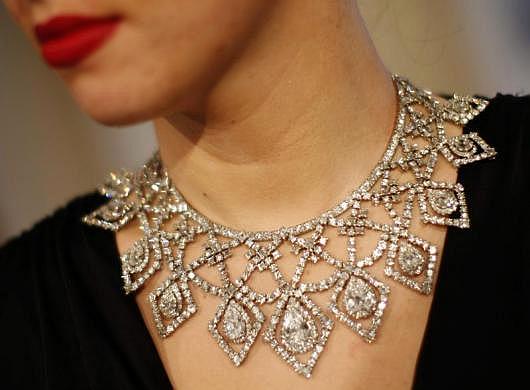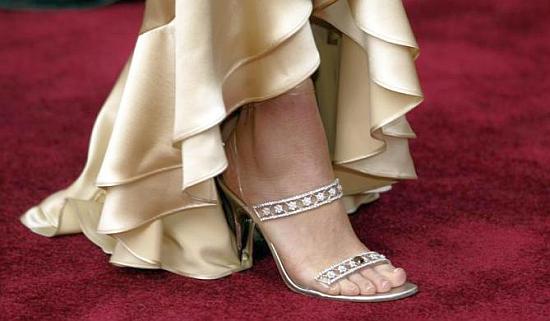 | « Back to article | Print this article |
Diamonds' journey from sweat to smiles
Almost all of the diamonds that exist today began their journey more than one billion years ago in superheated molten rock and under intense pressure, hundreds of kilometres below the Earth's surface.
By the time they come to the retail market, they have to go through another journey across continents. An estimated 65 per cent of the diamonds originate in Africa and a good percentage of this is illegally acquired and sold.
The rough diamonds then travel to India or China for cutting and polishing. Finally, they end up in major diamond importing countries such as US and Israel.
Let's look at journey of diamonds in pictures.
Click NEXT to read more...
Complete coverage: Union Budget 2013-14
Budget Impact Live!
Diamonds' journey from sweat to smiles
An illegal diamond dealer from Zimbabwe displays diamonds for sale in Manica, near the border with Zimbabwe.
Complete coverage: Union Budget 2013-14
Budget Impact Live!
Diamonds' journey from sweat to smiles
An aerial view shows an illegal mine in the jungle, south of Venezuela. Like African countries, Venezuela is also a major diamond producer.
Complete coverage: Union Budget 2013-14
Budget Impact Live!
Diamonds' journey from sweat to smiles
Miners form a human chain while digging an open pit at the Chudja mine in the Kilomoto concession near the village of Kobu, 100 km (62 miles) from Bunia in north-eastern Congo.
Complete coverage: Union Budget 2013-14
Budget Impact Live!
Diamonds' journey from sweat to smiles
Workers wash dirt and rocks in a river running through an open pit in Sierra Leone's diamond-rich eastern province.
Complete coverage: Union Budget 2013-14
Budget Impact Live!
Diamonds' journey from sweat to smiles
Diamond and gold buyers wait for miners and customers outside a shop in Santa Elena de Uairen, south of Venezuela.
Complete coverage: Union Budget 2013-14
Budget Impact Live!
Diamonds' journey from sweat to smiles
A miner pauses to smoke while working near the town of Ikabaru in the south of Venezuela.
Complete coverage: Union Budget 2013-14
Budget Impact Live!
Diamonds' journey from sweat to smiles
A miner works underground in a Petra Diamonds diamond mine in Cullinan, outside Pretoria.
Complete coverage: Union Budget 2013-14
Budget Impact Live!
Diamonds' journey from sweat to smiles
A truck unloads ore in a Petra Diamonds underground diamond mine in Cullinan, outside Pretoria.
Complete coverage: Union Budget 2013-14
Budget Impact Live!
Diamonds' journey from sweat to smiles
Israeli diamantaire Avraham Eshed uses a pair of tweezers to hold a diamond at the Israel Diamond Exchange in Ramat Gan near Tel Aviv.
Complete coverage: Union Budget 2013-14
Budget Impact Live!
Diamonds' journey from sweat to smiles
An employee of Shefa Yamim diamond exploration company sifts through rocks in search of precious stones at the firm's laboratory in Acre, northern Israel.
Complete coverage: Union Budget 2013-14
Budget Impact Live!
Diamonds' journey from sweat to smiles
A view of a diamond cutting factory in Botswana's capital Gaborone.
Complete coverage: Union Budget 2013-14
Budget Impact Live!
Diamonds' journey from sweat to smiles
Employees work at a diamond cutting and polishing factory in the Surat in the western Indian state of Gujarat.
Complete coverage: Union Budget 2013-14
Budget Impact Live!
Diamonds' journey from sweat to smiles
Israeli diamantaires inspect diamonds at the Israel Diamond Exchange in Ramat Gan near Tel Aviv.
Complete coverage: Union Budget 2013-14
Budget Impact Live!
Diamonds' journey from sweat to smiles
A visitor holds a 17 carat diamond at a Petra Diamonds mine in Cullinan, outside Pretoria.
Complete coverage: Union Budget 2013-14
Budget Impact Live!
Diamonds' journey from sweat to smiles
A worker inspects a 5.46 carat diamond before certification at the HRD Antwerp Institute of Gemmology.
Complete coverage: Union Budget 2013-14
Budget Impact Live!
Diamonds' journey from sweat to smiles
A couple window shop at the DeBeers diamond boutique on Christmas eve on Rodeo Drive in Beverly Hills, California.
Complete coverage: Union Budget 2013-14
Budget Impact Live!
Diamonds' journey from sweat to smiles
A saleswoman is reflected in a mirror as she tries on jewellery at the Israeli Diamond Centre store in Ramat Gan, near Tel Aviv.
Complete coverage: Union Budget 2013-14
Budget Impact Live!
Diamonds' journey from sweat to smiles
A Christie's employee places a necklace featuring the Evening Star, a 39 carat, D colour Golconda diamond, into a display case in New York.
Complete coverage: Union Budget 2013-14
Budget Impact Live!
Diamonds' journey from sweat to smiles
An employee at a diamond merchant's workshop inspects diamonds while grading them in Mumbai.
Complete coverage: Union Budget 2013-14
Budget Impact Live!
Diamonds' journey from sweat to smiles
A man puts an engagement ring on a woman's finger during a photo opportunity at a jewellery store in Tokyo.
Complete coverage: Union Budget 2013-14
Budget Impact Live!
Diamonds' journey from sweat to smiles
A Christie's employee wears a sapphire (33.23 carats) and diamond ring by Repossi (centre), a 30.52 carat diamond ring (D color, Flawless) (left) and a Fancy Intense Yellow diamond ring (57.02 carats) during an auction preview in Geneva.
Complete coverage: Union Budget 2013-14
Budget Impact Live!
Diamonds' journey from sweat to smiles
A model wears a diamond necklace by Cartier, estimated at 200,000 - 250,000 pounds (about $412,777 - $515,923), which formed part of the collection owned by Anne Moen Bullitt and will be sold in December's Fine Jewellery & Iconic Jewels from the 20th Century sale, at Bonhams auctioneers in London.
Complete coverage: Union Budget 2013-14
Budget Impact Live!
Diamonds' journey from sweat to smiles
Singer Alison Krauss wears $2 million dollar shoes, made out of Kwait diamonds and designed by Stuart Weitzman, as she arrives for the 76th Academy Awards in Hollywood.
Complete coverage: Union Budget 2013-14
Budget Impact Live!
Diamonds' journey from sweat to smiles
A staff member lifts the largest D color internally flawless diamond ever to appear at auction from its display box at Sotheby's auction house in London.
Complete coverage: Union Budget 2013-14
Budget Impact Live!

© Copyright 2025 Reuters Limited. All rights reserved. Republication or redistribution of Reuters content, including by framing or similar means, is expressly prohibited without the prior written consent of Reuters. Reuters shall not be liable for any errors or delays in the content, or for any actions taken in reliance thereon.
